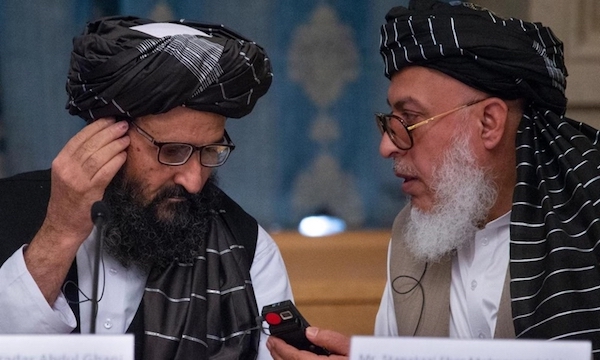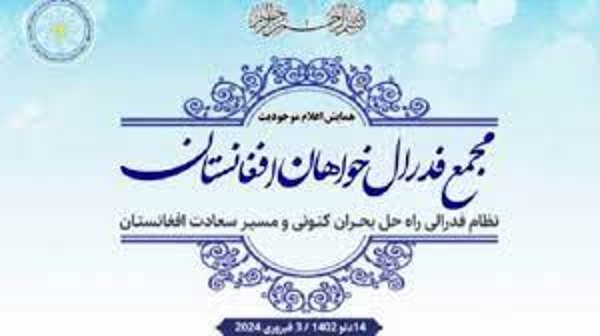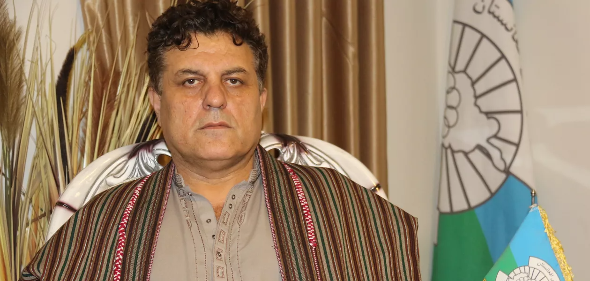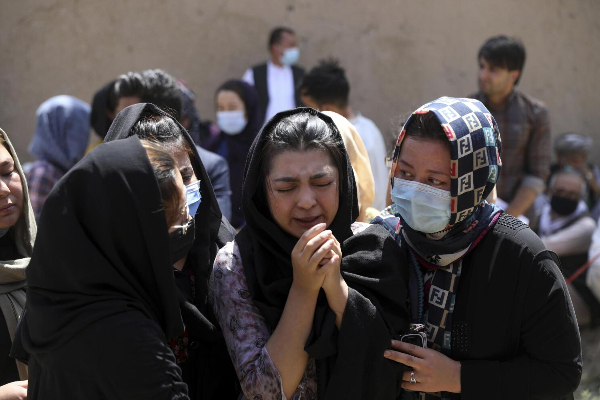
Shir Mohammad Abbas Stanikzai, a prominent member of the political office the Taliban in Qatar, told Ariana News that as soon as Delhi contributed positively to the Afghan peace process, the Taliban were ready to get along.
Since the start of the talks between the United States and the Taliban in 2019, many countries, including Russia, China, Pakistan, Iran, and some Central Asian countries, have approached the Taliban representatives, except for India.
The United States has recently poked India to participate in the process. The Taliban have also welcomed it, saying it was conditional of a positive move by the India side.
Responding to the question "if the Taliban were willing to talk to India as part of the US efforts", the groupís prominent member Stanikzai said: "We have no problem with anyone who wants to take a positive step towards peace in Afghanistan. Whenever they want to take a positive step in this regard, we are ready to talk with them for peace."
Zalmay Khalilzad, the US special representative for reconciliation in Afghanistan, has said India was an important element in Afghanistanís peace process and would welcome its involvement in it
In the meantime, ThePrint, an Indian digital news platform, has written that it was not expected that the Narendra Modi administration would change its position and be directly part of Afghanistanís peace talks with the Taliban unless it derives from pressure by the United States.
It has quoted senior Indian officials as saying that New Delhi was willing to speak out if the Taliban recognized the democratic government - the Afghan government - and that the United States was now forcing India to take part in the Afghan peace talks.
An Afghan free journalist Sami Yousufzai, who is mostly following the peace process and its events, believes that India is deeply concerned about the Talibanís return to the Afghan political system.
"It is a fact that during the Taliban regime, thousands of Kashmir jihadist fighters were active in Afghanistan." He said noting that when the United States sought a guarantee from the Taliban that there would be no more room for al-Qaeda or other groups that pose a threat to the United States and the West, India also wanted to receive a commitment from the Taliban as such.
On the other hand, according to Yousufzai, Zalmay Khalilzad has tried to share Indiaís concerns with the Taliban, which seems to be fruitful as a relationship seems to have taken birth between the Taliban and India.
The progress in the Afghan peace talks has shown that Pakistan has influence over the Taliban and is a key player in the process.
India, on the other hand, had no place in the process but has now made it clear that at the other end of the process - the Afghan government - it has a strong position in relation to the Ghani-led government.
Ahmad Saeedi, a former diplomat at the Afghan embassy in Pakistan, said that following the US-Taliban agreement, [India] was deeply concerned thinking that all the provisions of the agreement were in Pakistanís interest; therefore, Zalmay Khalilzad has been trying to seek Indiaís satisfaction to step into negotiations with the Taliban.
So far, India has not yet announced its will for direct talks with the Taliban; however, a point to be noted is that after meeting with Indian officials, Zalmay Khalilzad traveled to Pakistan and met with Qamar Bajwa, Pakistani armyís chief of staff, to seek Islamabadís support in speeding up starting the Intra-Afghan talks, reducing violence, and overall, to help take the Afghan peace process to next level.
Khalilzad travels to Qatar to meet with Taliban political representatives, following up on his agenda: the acceleration of government-Taliban prisoner releases, the immediate start of Intra-Afghan talks, the reduction of violence, the humanitarian ceasefire, and last but not the least, Indiaís participation in the peace process.
LINK: https://www.ansarpress.com/english/17314
TAGS:






























 Ghani Removed From UN Heads of State List
Ghani Removed From UN Heads of State List 




